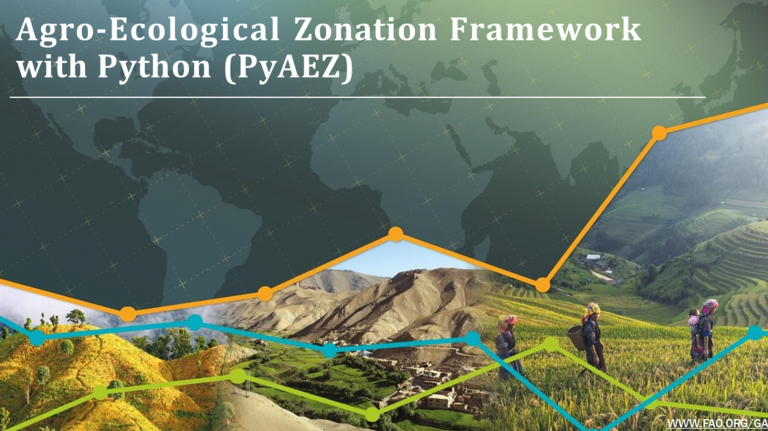
We are excited to announce a new update for PyAEZv2.1, an open-source Python library for working with the Agro-Ecological Zonation (AEZ) methodology. This update includes several enhancements and bug fixes to improve the functionality and user experience of the library.
The goal of this release is to improve the overall accuracy and reliability of the AEZ methodology in Module 1, 2, and 3. The key updates are as follows:
Module 1:
- Major improvements in the Length of Growing Period (LGP) calculation routine through the implementation of Numba (a Python package to speed up the calculation) and cross-checking the methodology with the Global AEZ from IIASA.
- All the climatic indicators had been thoroughly cross-checked and verified with the Global AEZ outputs.
Module 2:
- Reading crop/crop cycle parameters from excel sheet.
- Updated algorithm for TSUM screening and parameter settings.
- New thermal screening logics: permafrost screening, crop-specific rule screening.
- Updated algorithm for perennial crop simulations.
- New outputs: thermal reduction factor maps (fc1), yield reduction due to moisture deficit (fc2) and optimum starting date, for both rainfed and irrigated conditions.
Module 3:
- New look-up table setting for agro-climatic reduction factors for both rainfed and irrigated conditions.
- Updated algorithm related to agro-climatic constraints calculation.
- New outputs: Adjusted Length of Growing Period for agro-climatic constraints, agro-climatic constraint map (fc3).
We would like to express our gratitude to the PyAEZ community for their valuable feedback and contributions. Your input has been instrumental in shaping this update and making PyAEZ more robust and user-friendly.
To get started with the latest version of PyAEZ, please visit our GitHub repository: https://github.com/gicait/PyAEZ. Detailed installation instructions and documentation can be found in the repository’s README file.
If you encounter any issues or have suggestions for further improvements, please don’t hesitate to open an issue on our GitHub repository. We appreciate your continued support and involvement in the PyAEZ project.
Thank you for choosing PyAEZ, and we hope this update enhances your experience and enables you to gain deeper insights into the Agro-Ecological Zonation methodology.
Best regards,
PyAEZ Team
Related Links
PyAEZ GitHub Repository: https://github.com/gicait/PyAEZ
